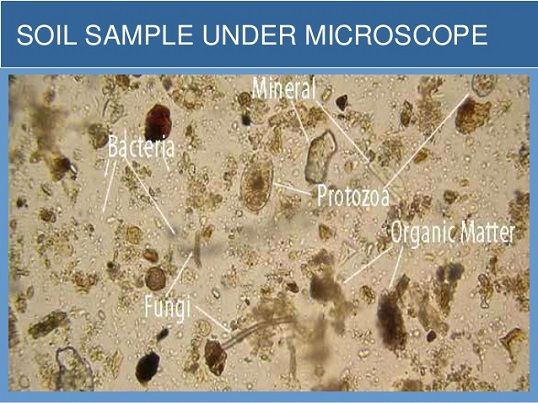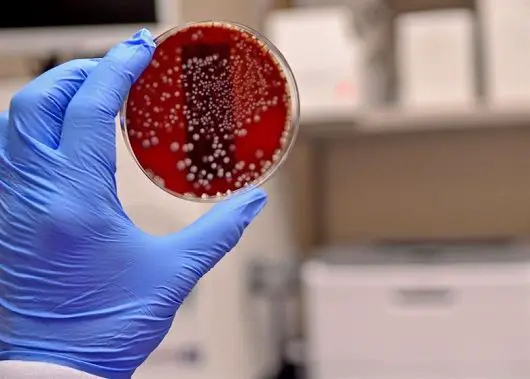Microbiology is a science that deals with the characteristics and properties of microorganisms for their safe handling and beneficial applications for humans.
This Knowledge is used in health care for the prevention of diseases, diagnosis, sterilization methods, and drug production.
Further, the knowledge is also extended into the production of food, alcohol, and applications in agriculture, the leather industry, etc.
It has helped in the production of medicines, and vaccines, to control the mass epidemics like rabies, smallpox, and other infectious diseases.
Importance of microbiology in Different Areas
Since it finds use in many areas of human life, it is easy to understand its role in specific areas of human benefit like below.
Importance of microbiology in nursing practice
The use of microbiology in nursing is concerned with the hospital environment, drug administration, diagnosis, and even waste disposal.
Through this, the nurses can also know the patient’s health progresses during the treatment.
Aseptic practices
- The nurses are directly involved in handling patients in a hospital.
- Hence, it is the duty of a nurse to see that the syringes, surgical devices, and equipment used on the patient are clean and free from microbes.
- Nurses use hot water or antiseptic as a measure to sterilize surgical knives, needles, scissors, and other metal instruments to free them from microbes. They also use alcohol to clean the wounds as they know that alcohol destroys germs.
- Microbiology also teaches nurses how to handle a patient and his samples infected with communicable diseases.
- Hence they use hand gloves and face masks to prevent being infected themselves.
Sterile working environment
- Having a sound knowledge of types of microbes and methods of eradication helps them keep the environment sterile.
- A sterile and contamination-free environment is essential in the hospital, mattresses, washrooms, etc.

Medicines and cultures
- Many patients admitted to the hospital are prescribed antibiotics as part of infectious treatment.
- But not all drugs will be effective for the patients, and they may need a specific antibiotic for their condition.
- To determine this, the patient’s sputum, excreta, urine, or blood samples are taken for an antibiotic sensitivity test.
- This way, the correct bacterial strain responsible for infection is determined, and a suitable antibiotic is prescribed.
Blood group determination and transfusion.
- Microbiology also deals with antibodies and antigens. It helps determine the blood groups and diseases in the blood.
- The nurse can identify the blood groups of the patient through simple immune reactions.
- Identification of blood groups helps infuse the correct blood group in an emergency and avoid complications.
- It also helps detect diseases like Tuberculosis by simple skin test, namely the Mantoux test.
Also, diagnostic tests like Elisa, electrophoresis, and radioimmunoassay also use microbiology principles to identify disease.
Importance of microbiology in pharmacy
Pharmacy stores and pharmaceutical companies use microbiology extensively for
1) The production of medicines like antibiotics, enzymes, vaccines, insulin, vitamins, steroids, etc.
Some of the substance is exclusively obtained from microbial cultures.
Most antibiotics are obtained only from microbes. Vitamin-B12 (cyanocobalamin) is obtained from a culture of bacteria. Similarly, human insulin for diabetes is purely derived from the microbial culture by rDNA technology.
Initially, diabetics were given the injection of insulin obtained from animals.
But due to massive demand and also compatibility problems (as it was not human-derived), there was a need for another source of human insulin.
Then rDNA technique involving E.coli bacteria was adopted to produce large amounts of human insulin, which are even safe.
See the article on rDNA technology for more info.
Enzymes like streptokinase, which help in the breakdown of clots, are obtained from bacteria.
Vaccines are medicines that help to prevent diseases and infections in the future. There are different types of vaccines; live and dead vaccines are produced from bacteria.
Vitamins like vitamin B-12 (cyanocobalamin) are obtained from the bacterial fermentation of genetically modified bacteria.
2) For sterilization of manufactured drugs. Manufactured drugs have an expiry date. This expiry date indicates until when the drug is active. The presence of microorganisms can enhance the degradation of the drug. Also, their presence can cause new infections in the patient when administered.

Hence drugs are to be kept free from any form of living organisms. Sterilization exactly achieves this and it destroys all kinds of microbes.
There are many types of sterilization used in industry.
3) New drug discovery: Also, many new drugs are in the search through the use of microbiology. Since many antibiotics, enzymes, etc., were derived from microbes, still, the microorganisms are searching for more new drugs.
Importance of medical microbiology:
In medicine, microbiology is taught to let pupils understand
- Study of microbial diseases, i.e., what microorganisms cause diseases like protozoa, bacterial, viral, fungal, etc. Their mechanism and pathology of illness etc.
- Diagnosis of disease; Even diagnosis of the disease-causing microbe is taught to give the right drug and combat infection effectively. This diagnosis includes methods like microscopic observation, ELISA tests, western-blot, etc.

- Treatment of disease. One cannot blindly give an antibiotic if there is an infection. The Identification of a specific microbe helps to decide which antibiotic is needed. For example presence of mycobacterium requires anti-TB antibiotics and not routine antibiotics for complete cure. This identification of the specific organism is possible by microbiological assays.
Importance of microbiology in agriculture:
- Natural Pesticides: Few microbes like bacteria and viruses are exploited against pests attacking farm crops. Hence they are called natural pesticides. They are so specific to the pests or insects and don’t cause any harm to the plant or animals and humans.
- Natural manures: Few microbes like algae and bacteria are grown to enhance soil fertility by fixing nitrogen and water, retaining the soil’s capacity. Thus they also maintain soil microbiology suitable for plant growth. Crop rotation is a technique farmers adopt to enhance soil fertility by using microbes in the roots of leguminous plants.
- Decompose the waste: Microbes decompose the synthetic pesticide residues and other toxic material in agriculture soil and thereby protecting farms from toxin accumulation.
Importance of environmental microbiology:
- Microbes in the environment play an important role in scavenging. This means they clear any dead and decaying matter in the air and water on the surface.
- Without microbes, this earth would have been full of corpses, i.e., dead bodies. Microbes decay any organic substance directly and inorganic substances indirectly.
- Role of microorganisms in wastewater treatment: Wastewater is treated by microbes to free from all garbage. This is termed biological oxygen demand. i.e., the amount of oxygen required by microbes to decay on 100kg of waste.
Importance of soil microbiology
Soil microbiology is very important to maintain soil structure and nature.
- The soil layers with microbes support plants’ growth due to more water and fertility.
- Microbes in soil keep up water, and the earth having microbes has a higher water holding capacity.
- The hummus is the top layer of soil rich in microbes suitable for plant growth. This is because microbes produce natural organic matter, which is compatible and easy to absorb, thereby enhancing fertility.

- Microbes decay the waste remnants in the soil and make it hard. All fossil fuels are processed by microbes.
Other applications of microbiology
In Industry, microbiology is highly used in the manufacturing and processing of drugs, alcohol, food, etc.

I highly appreciate this website for being educative
i am very interested today read about microbiology and its importance I hope I will always read it because i am a student of nursing
complete importance of microbiology in the related areas.
Nice but not enough information